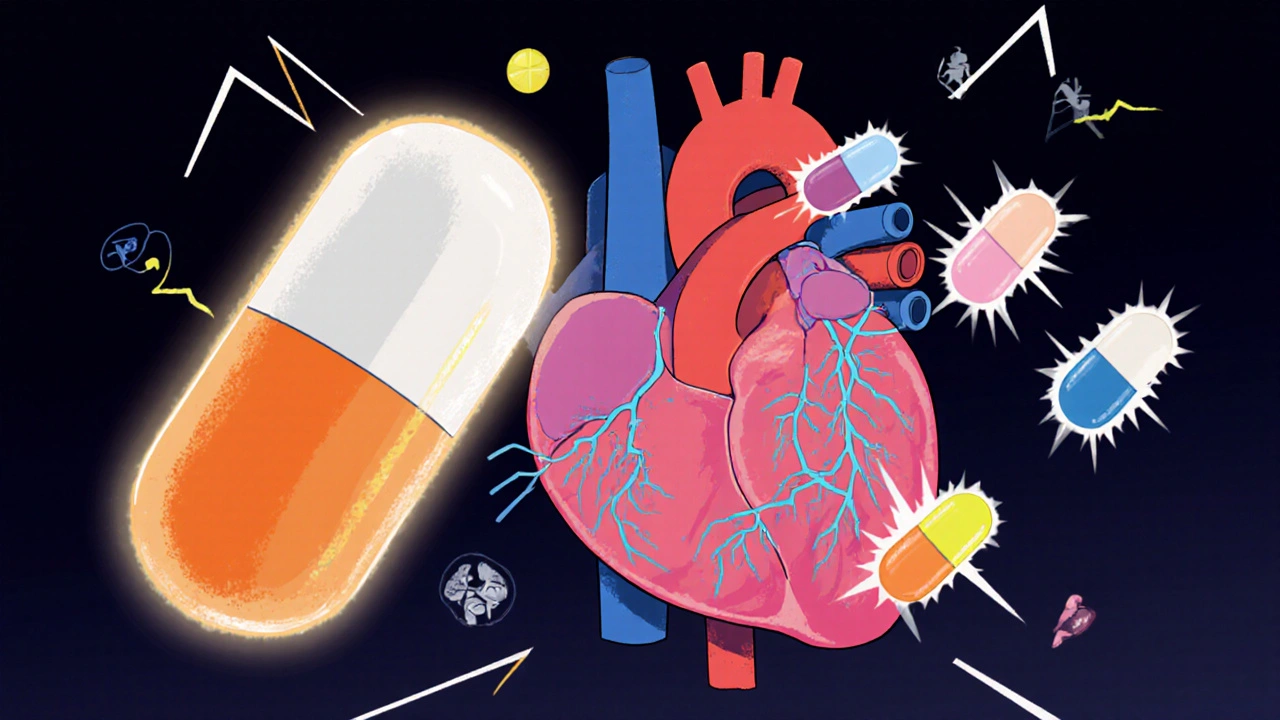Arrhythmia Treatment: Common Medications, Causes, and What Actually Works
When your heart skips, races, or flutters out of rhythm, you’re dealing with a arrhythmia, an abnormal heart rhythm that can be harmless or life-threatening depending on type and cause. Also known as cardiac arrhythmia, it’s not just a buzzword—it’s a real condition affecting millions, often linked to high blood pressure, heart disease, or even stress. Not every irregular beat needs drugs. Some go away on their own. Others need careful management.
Arrhythmia treatment doesn’t mean one-size-fits-all. atrial fibrillation, a common type where the upper chambers of the heart beat chaotically often gets treated with blood thinners to prevent clots, while antiarrhythmic drugs, medications designed to reset or stabilize heart rhythm like amiodarone or flecainide are used when the rhythm itself is the problem. But these drugs aren’t magic. They come with risks—liver damage, lung issues, even worsening arrhythmias in some cases. That’s why doctors don’t jump straight to pills. They check for triggers: caffeine, alcohol, sleep apnea, thyroid problems. Sometimes fixing those alone fixes the rhythm.
There’s also more than pills. For some, a simple procedure like ablation—where a catheter burns off the faulty electrical pathway—can be life-changing. Others need a pacemaker or implantable defibrillator. Lifestyle matters too. Cutting back on sugar, getting regular movement, managing stress, and avoiding binge drinking all help. It’s not about being perfect. It’s about being consistent.
You won’t find a single magic fix here. But you will find real talk about what’s actually used in clinics, what studies show works, and what’s often overhyped. Below are posts that break down specific meds, side effects, and alternatives—not theory, but what doctors and patients deal with every day. Whether you’re newly diagnosed, tired of side effects, or just trying to understand your doctor’s plan, these guides cut through the noise.
Cordarone (Amiodarone) vs. Alternatives: What Works Best for Arrhythmias?
Cordarone (amiodarone) is effective for serious heart rhythm disorders but carries serious long-term risks. Learn how alternatives like sotalol, dronedarone, and ablation compare in safety and effectiveness.
